- Home
- Paul Christopher
Valley of the Templars ts-7 Page 16
Valley of the Templars ts-7 Read online
Page 16
“So, who are you?” Turturro asked.
“Nobody,” said the pilot. “Just along for the ride.” He took another drag on the cigarette and smiled. “Actually, I am the ride.”
“You own the Wilga?” Turturro asked.
“‘Owned’ isn’t a real word in Cuba, Mr. Colonel, sir,” said Laframboise. “You only own something here until the government or some bigwig gets it into his head that he doesn’t like it or he wants it himself and then, poof, it’s gone. It’s like power, Colonel. It’s an ephemeral thing; it only exists if you can hang on to it and for as long as you can hold on to it.”
“Deep thinking for a crop duster,” said Turturro.
“Before I left the country in a hurry, I was finishing up a postgraduate degree in political science at McGill University in Montreal.” He picked up the Camels from the table. “Mind if I keep these?”
Turturro nodded. “Go ahead.”
Laframboise slipped the matches back under the cellophane, then put the package of cigarettes into his pocket.
“And you?” Turturro asked, staring at Arango. The Cuban turned his head and spit onto the floor.
“I am the man who cut off your compadres’ cojones fifty years ago. I was also the man who loaded the rocket into the RPG that brought down that airplane out there.”
“A CIA analyst, an MI6 agent, an old Fidelista and a gray-haired grad student from Montreal fly into an armed camp in a piece-of-crap crop-dusting plane. Why?”
“Sounds like the opening to a bad joke,” said Carrie. “We know why we’re here, but what about you?”
“This is the part when the bad guy tells the hero his evil plans for world domination?” Turturro said. “I don’t think so.” He stood up. “You’ll be held here until things…are under way. “After that you’ll be released and you’ll be on your own.”
“Not much of an interrogation,” said Black. “Where are the lasers and the pools full of sharks? Snakes maybe?”
“There are no poisonous snakes in Cuba,” said Turturro. “And I don’t need to interrogate you. For the moment I just need to keep you out of the way. Try to escape and my men will shoot you. Survive that and there’s thirty miles of jungle between here and the next best thing to civilization. So just stay put.” Turturro walked to the doorway, then turned. “Don’t piss me off,” he said, and then he was gone. A guard stepped halfway into the room and shut the door.
“That was a bit weird,” said Carrie. “It wasn’t much of an interrogation, was it?”
“You believe any of that bull-puckie?” Laframboise drawled, still smoking the Camel.
“I don’t think he has the slightest idea of what to do,” said Will Black. “We weren’t part of whatever game plan he’s got in mind. Flies in the ointment, so to speak.”
“So, what does he do with us?” Carrie said.
“He goes up the chain of command until he gets someone who can make a decision.”
“What chain of command?” Carrie asked. “Who is Blackhawk working for? The Pentagon wouldn’t sanction an invasion of Cuba; they wouldn’t dare and neither would the president.”
“I don’t know who his ultimate employers are, but the colonel is in the middle of something very big here. Those men and that equipment aren’t here as some sort of resistance army in the mountains. They’re an assault force.”
“You think this is part of Selman-Housein’s Operación de Venganza?” Carrie asked.
“I think it has to be.” Black nodded.
“Okay, I’m lost,” said Laframboise. He wet his fingers and pinched out the butt of his Camel. “What the hell is Operation Vengeance and what does El Comandante’s doctor have to do with it?”
“It’s a long story.”
“I’m not going anywhere,” said Laframboise. “And neither are you, boss.”
“We’d better be,” said Black, staring at the closed door, his tone ominous.
“Why’s that?”
Carrie answered, “Because pretty soon the colonel’s going to get his orders from on high and he’s going to kill us.”
20
The old man sat in the shade of the avocado tree growing beside the main house and watched his great-grandchildren splashing and playing at the far end of the large swimming pool. Their laughter seemed very far away, almost as if they were living in a different world from his own. In his world the voices were clear and the images were sharp and brightly colored and there was no need for the hearing aids he wore or the bifocal spectacles that pinched his nose.
He let his head fall forward a little and glanced at his hand on the arm of the old wicker chair. The chair came from the old family finca in Oriente where he and his nine brothers and sisters had spent their early childhood.
Cords of sinew and veins ran like creeping worms beneath parchment, liver-spotted skin, and the nails were thick and ribbed like yellowing horn. The old man lifted the hand and placed the tips of his first and second fingers below his nostrils, hoping to catch some faint scent of the cohibas his man Eduardo Irizarri had rolled for him. There was nothing, not the slightest memory of an odor; not surprising, really. It had been a quarter of a century since he’d given them up, and he chuckled aloud as the thought drifted through his mind like smoke.
He’d had his first cigar with his old friend David de Jongh behind the gymnasium at the Dolores School in Santiago and they’d coughed their lungs out on one of Father Alvarez’s Montecristos. They’d called him Bola de Churre then—“Greaseball.” Not anymore, and he smiled at that thought as well.
All so long ago, and that long life, a life without great love or change or real happiness, had been haunting him for some time now. What had he missed except to outlive all his enemies and watch presidents of the United States come and go like the turning of their leaves in autumn? There was no fall or winter here; it was always summer, it was always the twenty-sixth of July and he and his brother and Camilo, Huber Matos and Che were young again and attacking the Moncada Barracks with nothing but hope and bursting hearts and a few old weapons. Siempre Veintiséis!
“Papa?”
It was his son Antonio, the handsome one who traveled with the baseball team.
“Yes, Antonio?”
“You looked very sad, Papa.”
“I was thinking about snow,” the old man said, remembering.
“Has it ever snowed here?” Antonio laughed at the idea of snow in this place.
But the old man remembered it clearly. It had been Christmas Eve, 1976, and a blizzard in Montreal diverted them to the old airport in Gander, Newfoundland. He’d had Nitza and Margot prepare papa rellena and lechon in the airport kitchens for everyone, and then a reporter from the newspaper took him for a drive around the town. Behind the local hospital he’d seen some children with their trineos, their toboggans, sliding down a hill and he’d tried it for himself. He fell off, of course, and he and everyone had laughed except his bodyguards, but the children showed him how to make los ángelas in the snow and he’d lain there in the darkness, staring up into the night, the snowflakes falling on his beard and then his tongue.
“They were all different,” said the old man. “They were all different and that was the problem.” The great constant that Marx had overlooked in his squalid Soho garret in London—that there are no constants and that every man was as individual as his fingerprints…or a snowflake.
“What was different, Papa?”
“The snowflakes…they were all different.” To bend eleven million minds to yours and hold them for fifty years was just like catching snowflakes on your tongue—impossible.
There was a long silence, broken only by the children in the pool and the wind spinning the leaves above his head.
“The doctor is here for your checkup, Papa.”
The old man blinked and came back to the present. He stared at his son, letting his mind put itself together like the pieces of a jigsaw puzzle. A jet lumbered overhead on its way toward the airport, its muted turbines l
ike the rolling sound of distant thunder. A sound that didn’t even exist in the world of the twenty-sixth of July.
“Eugenio has returned from Irlanda?”
“No, Papa, this is a new doctor for you.”
“I don’t want a new doctor,” he said, his voice suddenly suspicious. “Where is Eugenio?”
There was a long pause. Finally the old man’s son spoke again. “He may have…defected. He was last seen at his hotel in Dublin, but he disappeared in the big park they have there.”
“Perhaps he was abducted.”
“No, Papa, they do not think so.”
“They?”
“MININT, Papa.”
“Ibarra?” General Abelardo Colome Ibarra was minister of the interior, but Antonio Castro knew the seventy-three-year-old man had been showing clear signs of dementia for some time now. The only thing keeping him in his position was his longtime friendship with his teo, and even with that most of his responsibilities had been put onto other, younger shoulders.
“Yes, Papa.”
“Ibarra is insane, you know,” murmured the old man. “An old American hand grenade exploded too soon and he had a sliver of shrapnel in his brain. At Cuevo, near the old house in Biran.”
“Papa,” said Antonio gently. “You must let the doctor examine you. We want to make sure you are well enough for the festivities next week.”
“Festivities?”
“The feast of St. Lazarus, Papa. Everyone will be here for you. You must see the doctor to see if you are well enough.”
“No doctor!”
The sound of the old man’s voice rang out like a pealing bell. It was enough to startle the yellow-breasted zapatas in the avocado tree into hurried, noisy flight. It was the voice of a man who had ruled a generation. Even the children stopped playing in the pool for a moment. The young man sighed. He knew that tone. “Yes, Papa,” said this son meekly. He placed his hand on his father’s shoulder and together they silently watched the children playing in the swimming pool. There were some things that you just didn’t argue with Fidel Castro about, and this was obviously one of them. The doctor could wait.
Holliday sat with Eddie in the shadows of the cave entrance. Through the Russian binoculars, Holliday watched as two men climbed up the hill toward them. The man in the lead was Domingo Cabrera, but the withered old man behind him was a stranger.
The old man was wearing an old straw cowboy hat, an old-fashioned wifebeater undershirt, a pair of jeans and worn-out high-laced combat boots. He had a weapon in his hands, a canvas bag on his hip and something that looked like a bowie knife in a leather sheath hanging from his belt. From where Holliday sat, the old man’s weapon looked like an old Remington 1912 shotgun with a homemade leather sling, but the man was clearly no threat to Eddie’s brother. Domingo strode on ahead, his own Saiga .308 carelessly slung over one shoulder, his knapsack over the other.
According to Domingo, there was a tiny farming village six or seven miles from the cave where he sometimes went for supplies, but he never mentioned bringing one of the villagers back with him. The runaway MININT officer had told the villagers he was a dissident hiding from the police, but how would he explain his brother and a man who was clearly a yuma?
The two men finally reached the cave and Holliday, and Eddie stood and stepped out of the shadows. The old man with Domingo looked at them carefully, and Holliday saw his right index finger curl against the trigger of the old shotgun. The man was as black as tar, his face cut with lines and wrinkles so dense that it looked like darkly grained ebony. His eyes were a startling and very clear blue.
“Está bien, Enrique,” murmured Domingo. “Ellos son amigos.” Domingo slipped the rifle off his back as well as the bulging knapsack. “No hay leña y el cubo es en la cueva.”
Enrique nodded. He slung the shotgun over his shoulder on its homemade sling and went inside the cave, giving Holliday and Eddie a still-suspicious glance as he went past them. Domingo began gathering rocks and putting them in a circle. Some kind of fire pit. A few moments later Enrique reappeared with an armload of kindling as well as the canvas bucket. He dropped the firewood beside Domingo and then went back down the hillside with the bucket. Domingo began building a fire.
“We must leave here very quickly,” he said, arranging kindling.
“Why?” Holliday asked. “Not that I have any objection.” What he really wanted was to get the hell away from Cuba as fast as he could and tell someone in authority what the hell was going on.
“There was a firefight at a checkpoint not too far from here. The guards were killed as well as a vanload of soldiers. At least a dozen men altogether. No one survived. Whoever did it wrote the words ‘Viva Zapata’ on the wall of the barracks in spray paint.”
“Emiliano Zapata from the Mexican War?” Holliday asked. “That’s nuts.”
“Presumably the message referred to Orlando Zapata, a dissident who died during a hunger strike several years ago,” said Domingo. He lit the fire with a kitchen match and it caught almost instantly.
“There’s a bunch of dissident guerrillas running around in the mountains?”
“I do not think so,” said Domingo. “Enrique has a mule. He was taking some eggs to the market when he heard the explosions at the checkpoint, and when everything was quiet he went down and checked. This is what he found.” Domingo turned away from the fire and opened his knapsack. He took out the expended tube of an M72 LAWS rocket, a dirt-stained black beret and a handful of brass shell casings. The shell casings were huge—at least two and a half inches long. Holliday recognized them instantly.
“Winchester .300 Magnums,” he said, picking one up and twisting it in his fingers. “Sniper rifle ammunition. Definitely not for amateurs.”
“Or dissident guerrillas,” said Domingo. “Look at the beret.”
Holliday picked it up. It was a standard military-style beret with a peak where a unit badge had been; he could even see the small, ragged stitching holes where it had been removed. He flipped it over and looked at the sweatband. Half worn off on the leather insert, stamped in gold, were the words MADE FOR BSSI, BY PARKHURST HAT CORPORATION.
“Oh, shit,” said Holliday. “Not again.”
“Who is this BSSI?” Eddie asked.
“Blackhawk Security Systems International,” said Holliday.
“Ah.” Eddie nodded. “The fools who blew up my Pevensey and attacked us in the jungle,” he said angrily. Pevensy was the battered old riverboat Eddie had piloted up the Kotto River into the Central African Republic. It was aboard Pevensey that Holliday had met Eddie for the first time.
Enrique came trudging back up the hill, the pail heavy in his hand. He reached the top of the hill and the cave entrance and gratefully lowered the pail. Holliday had assumed he was going for water, but at first glance it looked as though the pail was full of mud.
“What’s with mud?” Holliday asked.
“I know,” said Eddie, grinning from ear to ear. “Watch.”
Enrique carefully unslung the old shotgun and put it down on the ground. He opened up the big canvas bag he had on his hip and took out a brace of three ring-tailed pheasants. He placed one of the game birds on the stone shelf outside the cave, stretched out the wings and carefully put a booted foot on each wing. He gathered the feet of the bird in one hand and pulled steadily. There was a wet tearing sound and the entire body of the bird came out of its skin, the entrails pulled out of the gut and still attached to the intact head and neck. He took a large knife from a sheath on his belt and sliced off the wings. The result was a perfectly boned, stripped and field-dressed pheasant.
He then proceeded to dress the other two pheasants in exactly the same way. With the three birds dressed, he scooped the muddy riverbank clay from the bucket and completely covered each bird. When all the birds were encased in the heavy clay, he pushed each one deep into the base of the small fire Domingo had built.
“Que estará listo en treinta minutos,” said Enrique. He squatte
d down on his heels, took a stick from the small pile of remaining kindling and used it to pile hot coals against the clay-covered birds.
“They will be done in half an hour,” translated Eddie. “My mother used to call it Faisán de Mendigo, Beggar’s Pheasant. It is a very old-country recipe.”
“I’m sure it will taste wonderful,” said Holliday, “but what does it have to do with getting out of here?”
“Enrique is an Italero, a priest of the Santeria religion. Later he will use the entrails of the three birds to give us knowledge of our future.”
“You must be kidding,” said Holliday
“Enrique is also the best guide and hunter in the mountains. If we want to get out of the Escambray, he must show us the way. Without him we are dead men.”
Holliday stared at the leathery old man squatting by the fire, poking at it with a stick. He was muttering to himself now, something that sounded like a prayer or incantation.
“Oshun ogoao mi inle oshun…igua iya mio…igua iko bo s…i iya mi guasi iya mi omo…y alorde oguo mi inl, ashe Oshun.”
“Go, Enrique,” muttered Holliday, wondering if Beggar’s Pheasant would turn out to be his Last Supper.
21
Father Ronan Patrick Sheehan arrived in Nassau on the Eastern Airlines early-morning flight and he was dead tired. It had been a long trip, beginning in Rome’s Fumincino Airport, then transferring to another aircraft at Heathrow and yet another in Miami. The things he did for God…and for Thomas Brennan.
Sheehan was a long-faced man in his fifties, jug-eared with grizzled, short gray hair and pale green eyes. He had a wide mouth and a long nose to suit his long face and a strong, square chin. He wore no collar; instead he was dressed in an open sport shirt, cream-colored chinos and worn-looking Nikes.
He traveled on a dark red Irish passport, and nowhere on the document was he identified as a priest. He was simply Nicholas Patrick Sheehan of Fethard-on-Sea, County Wexford, born there on November the sixteenth in the year of Our Lord nineteen hundred and fifty-three. There was no mention of the Jesuits getting him at twelve years old for the greater glory of God and beginning the journey that inevitably brought him to this place and on this day.

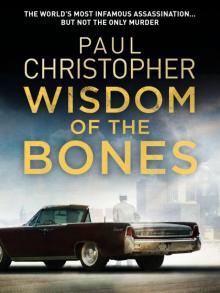 Wisdom of the Bones
Wisdom of the Bones The House of Special Purpose
The House of Special Purpose The Second Assassin
The Second Assassin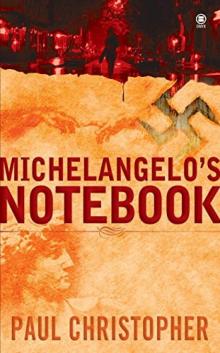 Michelangelo's Notebook
Michelangelo's Notebook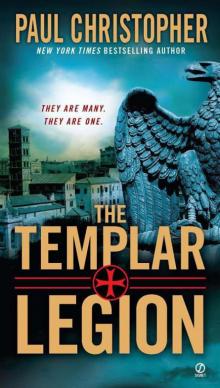 Templar Legion
Templar Legion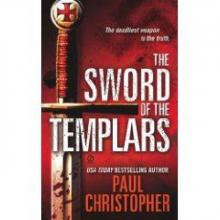 The Sword of the Templars t-1
The Sword of the Templars t-1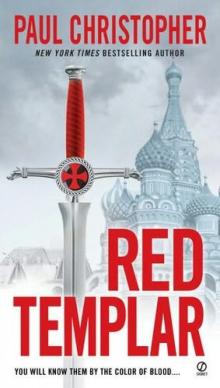 Red Templar
Red Templar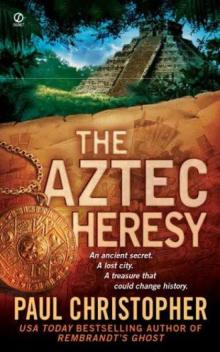 The Aztec Heresy
The Aztec Heresy The Templar Legion
The Templar Legion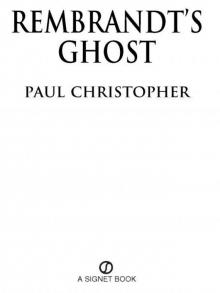 Rembrandt's Ghost
Rembrandt's Ghost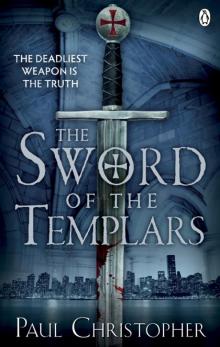 Sword of the Templars
Sword of the Templars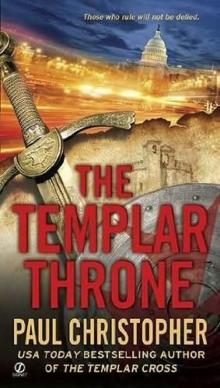 The Templar throne t-3
The Templar throne t-3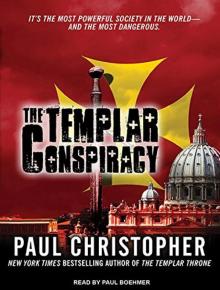 The Templar Conspiracy
The Templar Conspiracy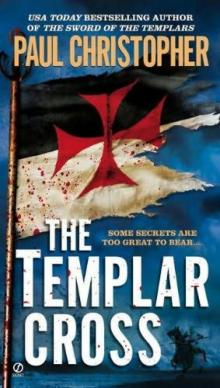 The Templar Cross t-2
The Templar Cross t-2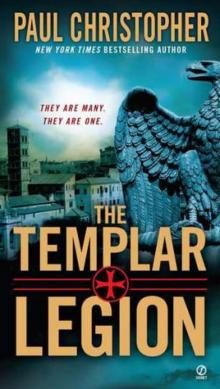 The Templar Legion t-5
The Templar Legion t-5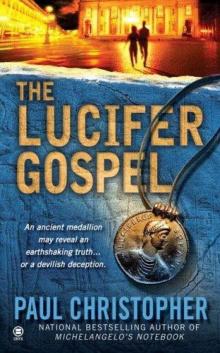 The Lucifer Gospel
The Lucifer Gospel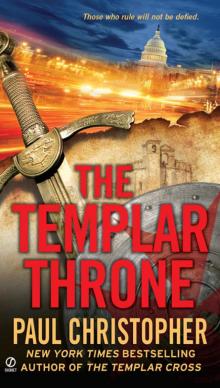 Templar Throne
Templar Throne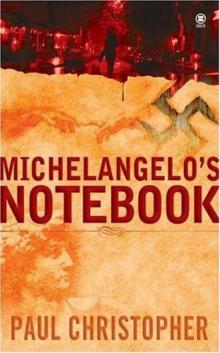 Michelangelo_s Notebook fr-1
Michelangelo_s Notebook fr-1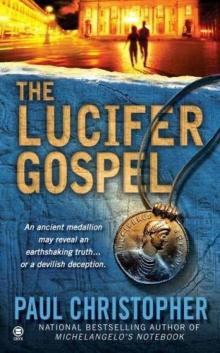 The Lucifer Gospel fr-2
The Lucifer Gospel fr-2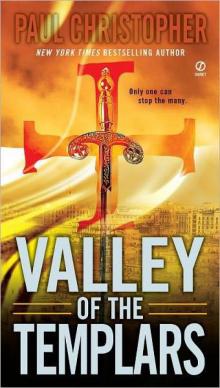 Valley of the Templars ts-7
Valley of the Templars ts-7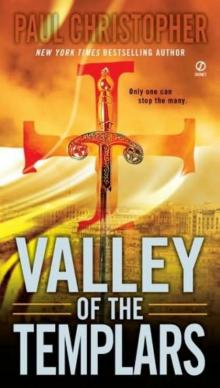 Valley of the Templars
Valley of the Templars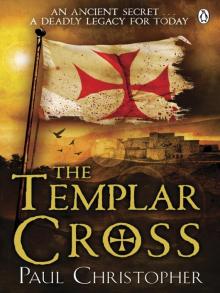 Templar Cross
Templar Cross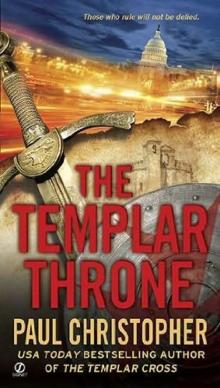 The Templar Throne
The Templar Throne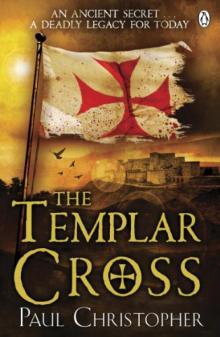 The Templar Cross
The Templar Cross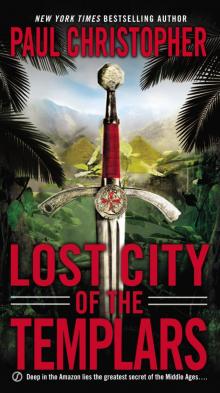 Lost City of the Templars
Lost City of the Templars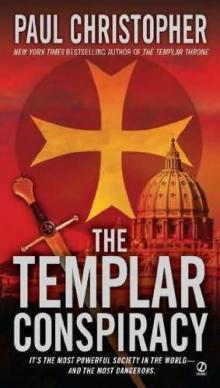 The Templar conspiracy t-4
The Templar conspiracy t-4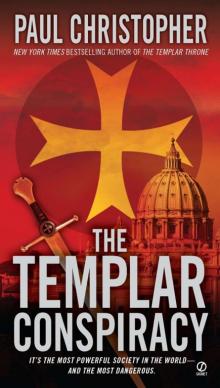 Templar Conspiracy
Templar Conspiracy